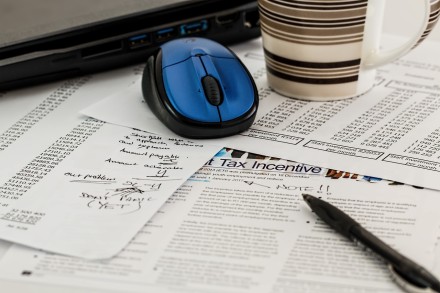
In an online discussion board of tax professionals who use the same software as me, a discussion caught my attention last year relating to whether a tax pro should create a balance sheet for a sole proprietorship.
In that discussion, some preparers said they always prepare a balance sheet for sole proprietorships. These commenters implied that any preparer who does otherwise is not a good preparer.
I agree with preparing a balance sheet and general ledger for entities (partnerships and corporations). In fact, I’ve been fighting this battle with my entity clients for almost a year now.
It’s hard to convince a small business owner who’s been used to keeping his corporate books on a spreadsheet (or worse yet, a spreadsheet that the owner prints out and then scrawls handwritten notes — in pencil! — in the margins) that it’s useful to actually have a true general ledger. But I’m fighting the fight.
One fight I won’t fight, though, is doing this with sole proprietors.
I’ve done balance sheets before for the rare proprietor who actually keeps everything separate.
But how does one even do a balance sheet for your typical sole proprietor where business and personal funds are often intermingled? Yes, it can be done. In fact, there’s guidance in one of my accounting guidebooks on how to prepare sole proprietorship financial statements under Generally Accepted Accounting Principles for a proprietorship with mingled personal and business funds.
So it can be done.
But for the typical sole proprietor, I don’t think it makes much sense.
I’m curious what other tax pros do. Like I said, I am re-educating my corporate and partnership clients who present me with a spreadsheet of income and expenses.
Clearly a true business entity needs a general ledger and balance sheet. But I think sole proprietorships are the one type of entity where a spreadsheet or even a handwritten summary can work.
The proprietorship is not a separate entity. There’s money the proprietor makes in the course of conducting business, and there are business-related expenses. The proprietor can withdraw money at any time, but it’s a tax nothing. Unlike a partnership or a corporation, there’s no equity or basis that needs tracked and accounted for.
I’m all for accuracy and keeping clean books. I just think a balance sheet is overkill for most sole proprietors.
Thoughts?


JD-
Actually business and personal funds should NOT be comingled, even for a sole proprietorship. There should really be separate business checking accounts and separate credit card accounts (both bank and store credit credit cards).
It is easy to create a balance sheet for a sole proprietorship if you are using general ledger software like QuickBooks for bookkeeping.
RDF
I agree, Robert. It’s critical for sole proprietors to keep things separate. Unfortunately, it doesn’t always happen. If kept separate, then you’re right, a balance sheet is easy.
[…] Dinesen, Does a Sole Proprietorship Need a Balance Sheet? Technically, no, but it’s foolish not to keep […]